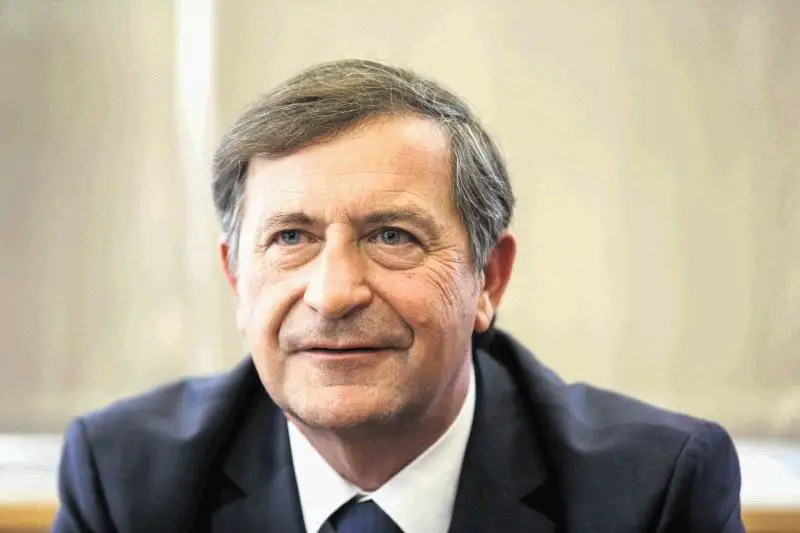STA, April 11 2018 - Igor Pribac, a political analyst, has labelled DeSUS a one-issue party, which is, "due to demographic factors, likely destined to succeed if it remains at least somewhat successful in defending the interests of pensioners in the future".
This is in line with plans by DeSUS leader Karl Erjavec, who has recently announced that the party would continue fighting for pensioners.
This includes establishing a demographic fund, which is meant to shore up Slovenia's pension system in the long-term. It was already planned during the current term, but the government scrapped it earlier this year after failing to agree on the details.
DeSUS has come under fire from other players for failing to deliver on its promises regarding the project. Nevertheless, Pribac does not believe this will affect the party's election result too adversely.
"Party president Erjavec ... has pointed out that the project did not fall through because of the party's inactivity but because of the unwillingness of [coalition] partners," the analyst has told the STA and said this would likely be enough for DeSUS voters to turn out and back the party on election day.
While DeSUS has not been doing well in public opinion polls recently - its support ranging from 3% to 5%, Pribac says polls have often been proved wrong when it came to the party's actual election outcome.
He believes the party, which will have candidates in all 88 voting districts, will get below 10% of the vote, but likely enough to be seen as "an indispensable partner" by all potential prime ministers-designate.
"I believe this is enough for the party, as any bigger role in the Slovenian arena would hurt it rather than benefit it," Pribac adds.
DeSUS, "a party of wise elderly gentlemen and ladies who are very refined", as party boss Erjavec puts it, was formally established in 1991 after a Maribor pensioners' association rebranded itself into a party the year before.

Karl Erjavec, party leader and current Foreign Minister. DeSUS Facebook
Despite labelling itself as centre-left, it has not been very selective in choosing alliances to work towards its goals, having served in all governments since 1997, including the two centre-right Janez Janša governments in 2004-2008 and 2012-2013.
In terms of MPs, the party achieved its greatest success in the latest general election in 2014, when it won 10 seats to become the third largest party in parliament behind the ruling Modern Centre Party (SMC) and Janša's opposition Democrats (SDS).
"The party has been part of all coalitions over the past two decades ... It seems it is very hard to put together a coalition without it," Pribac says. While rarely seen as one of the heavyweight parties, it has enough power "to tip the scales for centre-left or centre-right coalitions".
According to Pribac, this gives DeSUS great negotiating power in any coalition. "It has been using this power more or less successfully to strengthen the status of the group it was built for."
He does not expect any significant change in Slovenian politics as long as DeSUS continues to be part of coalitions, in part because it single-mindedly focuses on elderly people. This and the party's power have pushed the problems of young people to the background of the Slovenian political priorities, according to the analyst.
However, Pribac believes that DeSUS and Erjavec, who took over the party in 2005 and has been its undisputed boss ever since, are on an upward trajectory.
Erjavec, who was defence minister in 2004-2008, environment minister in 2008-2010, and has been foreign minister since 2012 "is one of the great protagonists of the Slovenian political arena ... He is in effect taking up increasingly prestigious posts."
"His political instinct and its application are very strong, as proven by his political trajectory, which does not seem to be headed for any kind of fall as of yet."
But Erjavec's track record at the Foreign Ministry has failed to impress former Foreign Minister Dimitrij Rupel, who said that Erjavec, while inheriting some problems from his predecessor in the Pahor government, had made several mistakes in terms of foreign policy.
Most notably with regards to Slovenia's ties with the US, which according to Rupel "were almost intimate, and friendly and constant" when he was in office.
Rupel was the foreign minister in 1990-1993 and in 2000-2008.
On the other hand, Slovenian diplomacy has turned towards Russia, which the former minister told the STA could not be explained by bilateral trade, "which is relatively small".
Furthermore, Erjavec has had an unlucky hand in picking diplomats, Rupel believes. According to him, Slovenia has a limited number of foreign affairs experts, but they have not been lent an ear during Erjavec's term.
Other articles in this series can be found here.






